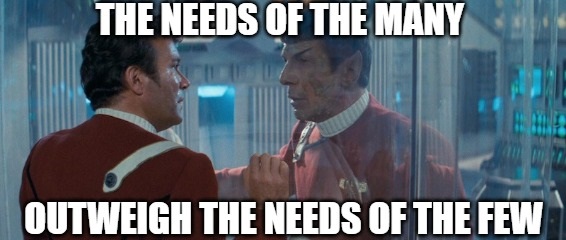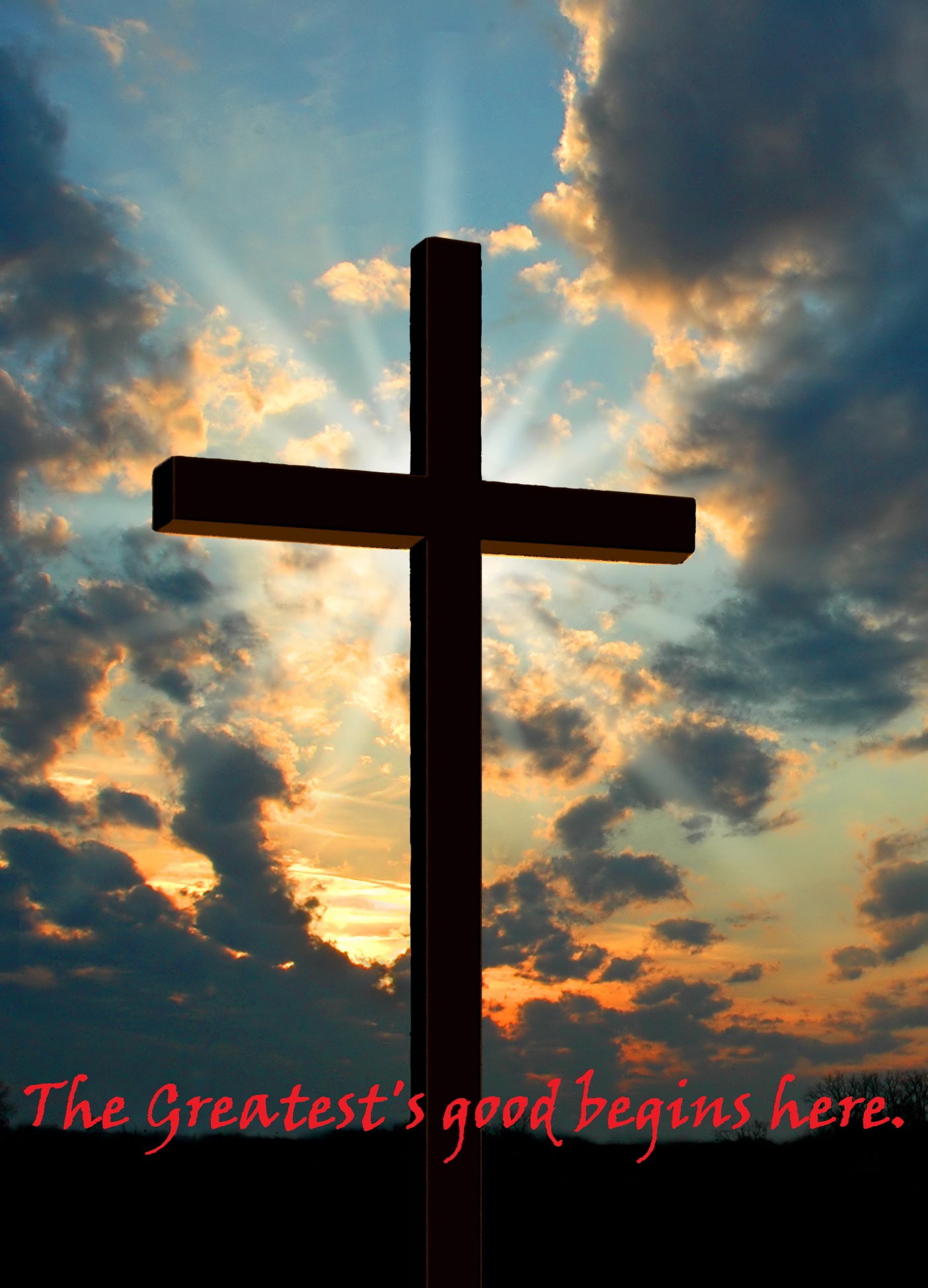The Greatest’s Good
By Anthony Casperson
1-16-21
If you stick around nerdom long enough, you occasionally pick up thoughts, ideas, and quotes from fandoms outside of your particular circles. For instance, while I’ve been exposed to Star Trek in several of its iterations, it’s not something that I watch with any sort of regularity. And even though that’s true, I still know the words of Spock from the movie Wrath of Khan: “Logic clearly dictates that the needs of the many outweigh the needs of the few.”
That quote came to mind when I heard the words of an 18th century philosopher and reverend of Scottish descent named Francis Hutcheson. Yeah, imagine my surprise when the words of a futuristic half-Vulcan, to which he refers as logical, popped into my head while reading a Scottish reverend’s words from the past in which he refers to happiness as a virtue.
Oh, did I not mention that last part?
Yeah, Hutcheson wrote in his 1725 work An Inquiry into the Original of Our Ideas of Beauty and Virtue that the “action is best which accomplishes the greatest happiness for the greatest numbers, and that worst, which in like manner occasions misery.”
I need to point out that he wasn’t referring to happiness in the hedonistic (and rather selfish) perspective that we usually have in our minds today. The kind that focuses on what makes us feel good as long as it doesn’t “hurt” others.
Rather, he was working with the definition that has its origin from the Old Norse word “happ,” which had the idea of “luck” or “chance.” Even as far back as the 1500’s, “happiness” has had the idea of being in a state where circumstances have given good to a person. A position of life whereupon good continues toward us.
Thus, Hutcheson’s words mean that it’s best (virtuous, even) for us to act in such a way that brings the greatest good for the most amount of people. And the further we get from that, both in the lessening of the good or the lessening of the number of people for whom the good comes, the more misery we bring to the world.
You can probably see why the man’s words echoed back in my head with Spock’s. It’s logical to do that which meets the needs of many, rather than only a few, because not doing so brings misery to the many. We are thereby adding more misery to the world.
With Hutcheson’s words, there becomes a tie in the language of happiness that binds it to civil responsibility. A philosophical perspective that led political thinkers about 50 years after the Scotsman’s treatise to include the right to the pursuit of happiness when they laid a foundation for a new nation. The pursuit of actions that bring about the greatest good for the greatest number of people.
But, as my original direction for this blog’s research flew out the window, a question followed soon after the Spock quote. Who decides what’s the greatest good? Is it the voice of the largest number of people? Or the loudest voice? Is it only those who speak as experts? Or those who have to sacrifice some amount of happiness so that many more can increase theirs? Is there something to the fact that Spock can speak of this perspective only when he’s about to sacrifice his own life for the many?
And in asking this question, another arises. Does the greater good change based on culture, place, time, or a hundred other factors that put a different amount of people into who is considered the “greatest number?”
For many, these questions can be confusing. And there are many differing opinions given as answer. But for followers of Jesus who stand on the words of God written through the personalities of those called by him, there is an answer that doesn’t change. And we can see it clearly in a passage mentioning another sacrifice for the good of the many.
The first half of Philippians 2 is known for many things. The call to humbly love one another as we consider others to be more important than ourselves. The command to look toward the interest of others, like Jesus did. The deity of Jesus, who didn’t count equality with God as something to be outside of his reality. The emptying of those godly rights in order to be a servant for many and becoming obedient to death, even death on a cross. The glory reinstated to the Son by the Father, that will culminate in the day when every knee bows and tongue confesses that Jesus is Lord.
But that’s where we usually stop. If we do continue into verse 12 and beyond, it comes as something for another occasion, as if it’s another topic. However, Paul continues with words that connect the first 11 verses of chapter 2 to the ones he’s about to say.
He calls for the Philippian Christians, and all we followers of Jesus after them, to continue to obey. Obey what? The commands to do all of those things from the previous words. Be humble to one another. Look at others before yourself. Follow Jesus’ sacrificial example. It’s how we join God in working his will into our lives. His will and his work that brings good favor to us.
Translations usually add the word “his” (meaning God’s) before their particular words for “good pleasure/favor/good will.” And while joining in the will of God brings him the greatest good, it also brings us the greatest good. Hence why, I believe, Paul didn’t add any possessive word for whose good it was. Because it’s both.
By God’s own words through Paul, to join God in his will as we obey the commands in the previous verses is the greatest good. And it’s true for everyone created by God.
Think about it. Who knows what is best for that which is made? The one who made it. Because in the making of it, there was purpose and design. An intimate understanding of what it can and can’t do. And understanding of what is good for it.
The same is true of we humans made as representatives of God on this world. Broken, marred, and scarred images though we may be. God created us for a purpose. He knows what brings us the greatest good. And it is the same good that he wills.
So, let’s perform the actions that bring the greatest good to the greatest number, which also happens to be the actions commanded by the greatest God.




